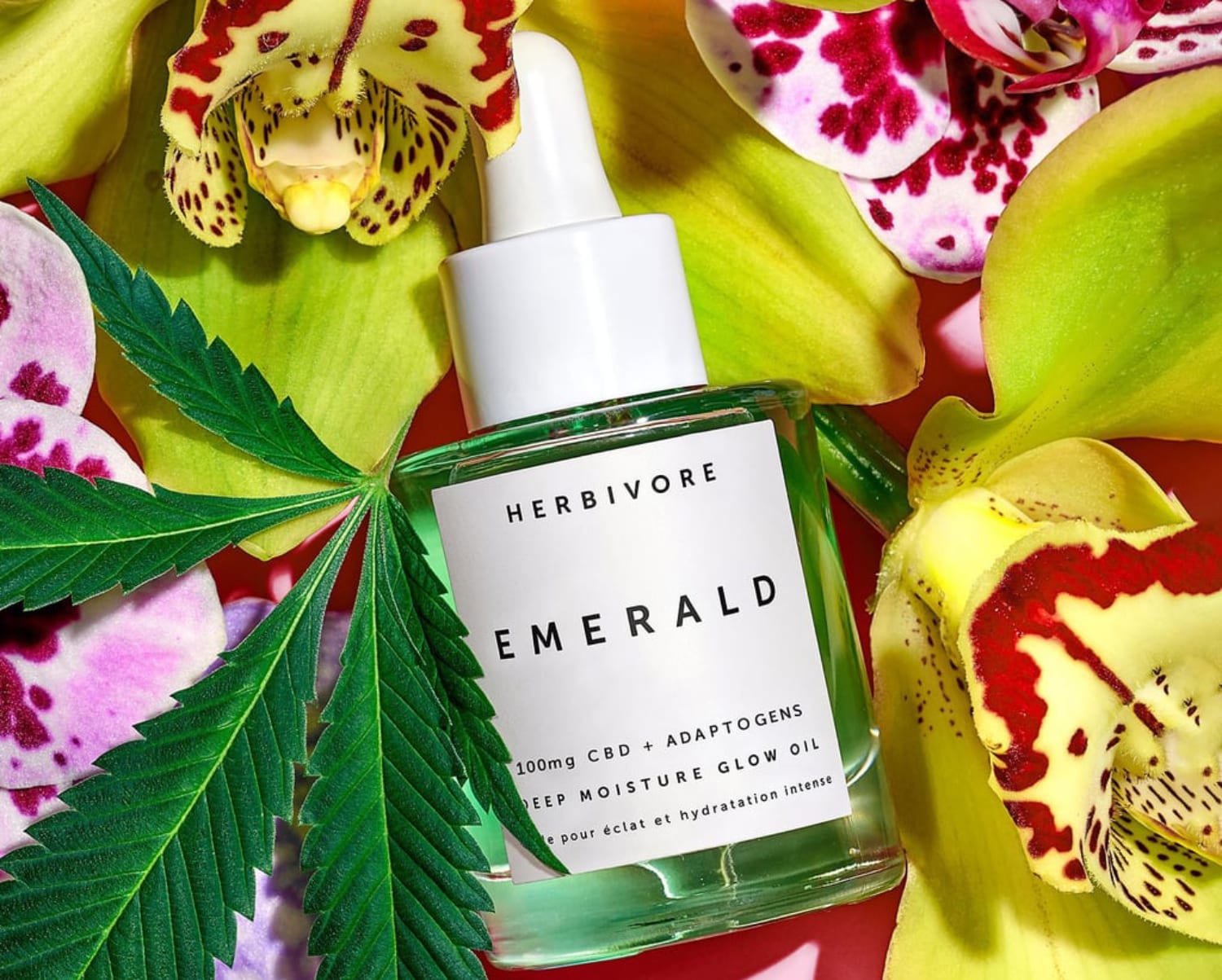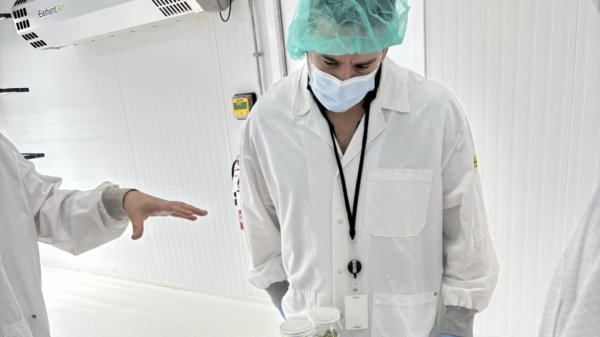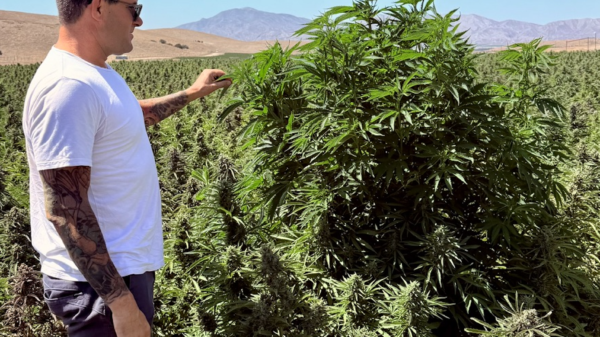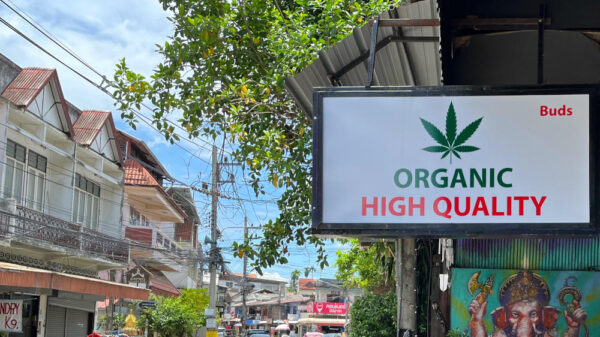CBD is disrupting the beauty industry at such an explosive rate that it could soon make up 10 per cent of the US$10 billion global skincare market, according to a new report.
Cannabis research firm Prohibition Partners forecasts the CBD skincare market will reach US$959 million by 2024 due to more launches from major players in the coming years as the unregulated CBD sector gains credibility.
The 48-page report explains how skyrocketing demand for CBD beauty products has led to a land grab among smaller indie brands as multinational cosmetic companies remain wary of CBD’s murky legal status.

Photo courtesy of Lord Jones
However, after the 2018 Farm Bill legalized hemp-derived CBD five major U.S. retailers have been stocking their shelves with CBD-infused face creams, make-up and sleep salves. Walmart, Sephora and Walgreens are among those trying and cash in on the cannabidiol craze, which will also spur future growth, the report says.
Two major Canadian cannabis companies — Cronos Group (TSX: CRON) and Canopy Growth (TSX: WEED) — have also made moves to grab a piece of the growing market.
Last August, Cronos acquired luxury CBD brand Lord Jones — the first-ever CBD brand sold in Sephora — for US$300 million. Two months earlier, Canopy acquired U.K. skin-care company This Works for $73.8 million in cash to enter the European CBD wellness market.
Much of the surging demand for CBD beauty products has been driven by women over 45 and female millennials who are drawn towards the apparent antioxidant and anti-inflammatory effects of CBD, the report notes.
“There are constant questions on the longevity of this trend but with the ability to act as a natural anti-inflammatory agent and an antioxidant, cannabis is becoming one of the most disruptive forces in the beauty and personal care industry in the last two decades,” Prohibition Partners’ managing director Stephen Murphy said in a release.
What’s in your CBD skin cream?

Screenshot from the Prohibition Partners’ Disrupting Beauty report
But Prohibition Partners, based in the U.K., also says continued consumer education will be vital to ensure the longevity of the CBD beauty market.
The report cites an anonymous collection of beauty insiders who go by Estée Laundry and have been pushing for transparency in the industry.
The group has called out companies like Milk Makeup and Melt Cosmetics for selling products that contain hemp seed oil, but only trace amounts of CBD, or none at all.
The lack of transparency spawned the term #WeedWashing, which is inspired from #GreenWashing, a term used to describe brands that aren’t as sustainable as they claim to be.
It’s been a wild west for the CBD beauty market, especially in the U.S. which accounts for the bulk of sales for the infused products.
Because the highest-quality CBD is derived through an expensive CO2 extraction process, brands that want to offer superior CBD products tend to fall in the premium beauty segment of the market.
At present, there are no industry standards for monitoring the quality and strength of CBD within cosmetic products, the report notes. Labelling and messaging are often unclear, making it impossible for consumers to sort through products and the authenticity of their claims.
Since the Canadian government only legalized hemp and cannabis-derived CBD topicals in October, 2019, there is only a scarce number of products available. Every CBD-infused product has to be vetted through the federal health agency and can only be sold at a patchwork of government-sanctioned stores.
CBD beauty products are legal in the European Union as long as they are made from hemp and contain naturally occurring, low levels of THC.
In the U.S., the Food and Drug Administration issued warnings last year to the public about the safety of CBD products. The agency has penalized several large CBD sellers for marketing their products with unsubstantiated claims.
U.S. Congress is looking at intervening on how CBD products are regulated, after the FDA has been slow to come up with a regulatory framework.
Read more: US House introduces bill to allow sale of CBD-infused food and drink
CBD science, industry needs more time to mature

Photo courtesy of Herbivore
Policymakers have voiced concerns over the lack of hard scientific evidence behind the myriad wellness claims made about CBD, but Prohibition Partners points to a growing body of research that has shown its potential as a super-natural ingredient.
A study in the Journal of of Clinical Investigation shows CBD can treat skin conditions like acne by reducing excess oil production, bacteria and inflammation.
The report highlights other studies that show CBD’s promising potential in addressing ageing with the compound’s anti-sebum properties. Sebum is the natural oil secretions produced in human skin tissue.
However, more in-depth human trials are required to advance the science of CBD, so consumers should exercise caution when evaluating and buying CBD beauty products, according to the report.
Because today’s beauty consumers increasingly demand transparency, Prohibition Partners says it’s paramount for CBD beauty producers, manufacturers and retailers to collaborate on setting high standard for CBD products.
The report included insights from New York-based cosmetics marketing expert Wendy Lewis, who has worked in the beauty sector for 37 years.
She said the hype surrounding CBD beauty products is “a little like blockchain” for now with many companies and start-ups trying to cash in on the growing trend. But once regulations are further established in the years to come, there will be a separation of winners and losers based on who is providing products with value.
“My guess is that the hype will fizzle out and only tried and true brands will flourish because consumers will be smarter about what to look for and start reading labels,” Lewis said.
jared@mugglehead.com
@JaredGnam














Ameri Research
August 14, 2021 at 9:52 am
Hello,
Thank you so much for sharing such important information.